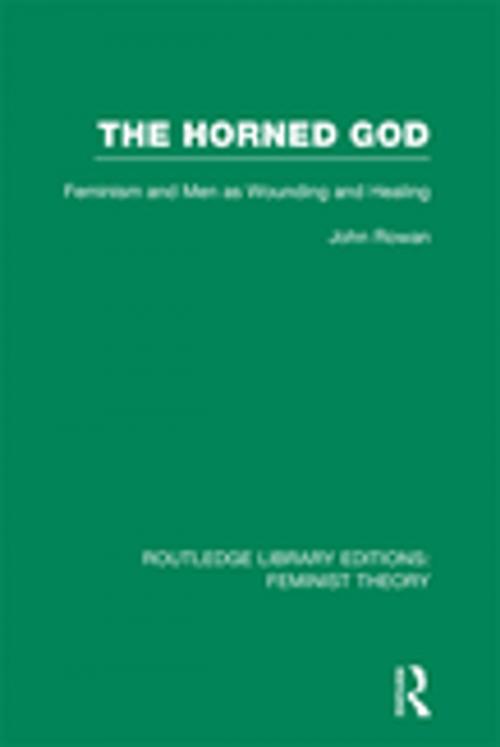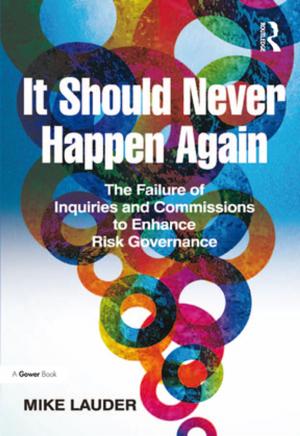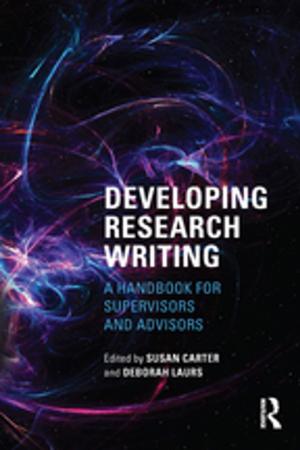The Horned God (RLE Feminist Theory)
Feminism and Men as Wounding and Healing
Nonfiction, Social & Cultural Studies, Social Science, Sociology| Author: | John Rowan | ISBN: | 9781136203930 |
| Publisher: | Taylor and Francis | Publication: | November 27, 2012 |
| Imprint: | Routledge | Language: | English |
| Author: | John Rowan |
| ISBN: | 9781136203930 |
| Publisher: | Taylor and Francis |
| Publication: | November 27, 2012 |
| Imprint: | Routledge |
| Language: | English |
This original and pioneering study of how men relate to feminism will appeal to all men who are concerned about their response to the women’s movement and to the women in their lives. It will also be helpful for women seeking a constructive response from men. John Rowan, drawing on his personal journey through feminism and on his considerable experience as a therapist, tackles the issues in a much deeper way than has been attempted before.
For men to discover feminism is wounding for them. It can even make them despair about being men at all. But unless they accept that wound, nothing much will change. John Rowan shows that men have to heal that wound at a conscious social-political level, changing laws, practice and daily behaviour. They have to heal it at an unconscious level, through therapy, exploring their profound feelings about their mothers, their fathers and their own internal female nature. They also have to heal the wound at a spiritual-transpersonal level, exploring the world of the Goddess and the Horned God. Only then, says, John Rowan, can they start to have any real dialogue with women, and only then can the world begin to change for both men and women.
This original and pioneering study of how men relate to feminism will appeal to all men who are concerned about their response to the women’s movement and to the women in their lives. It will also be helpful for women seeking a constructive response from men. John Rowan, drawing on his personal journey through feminism and on his considerable experience as a therapist, tackles the issues in a much deeper way than has been attempted before.
For men to discover feminism is wounding for them. It can even make them despair about being men at all. But unless they accept that wound, nothing much will change. John Rowan shows that men have to heal that wound at a conscious social-political level, changing laws, practice and daily behaviour. They have to heal it at an unconscious level, through therapy, exploring their profound feelings about their mothers, their fathers and their own internal female nature. They also have to heal the wound at a spiritual-transpersonal level, exploring the world of the Goddess and the Horned God. Only then, says, John Rowan, can they start to have any real dialogue with women, and only then can the world begin to change for both men and women.















